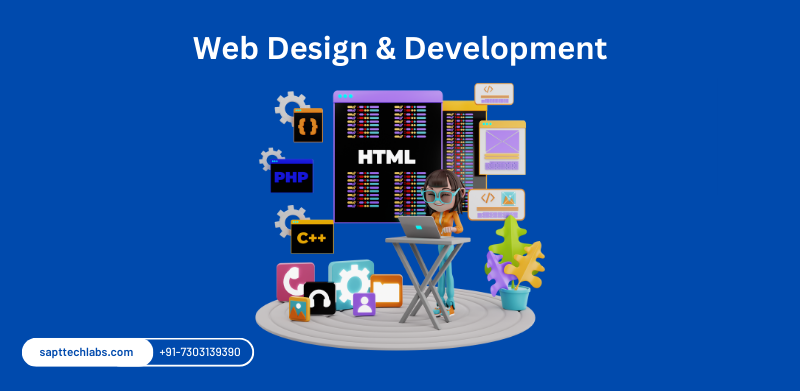Blockchain technology has been revolutionizing various industries, and one of the most exciting applications of this technology is in the realm of gaming. Blockchain game development combines the benefits of decentralized systems with the immersive and interactive nature of video games, opening up new possibilities for gamers and developers alike. In this article, we will delve into the world of blockchain game development, exploring its benefits, different types of games, the role of non-fungible tokens (NFTs), popular platforms, key considerations for developers, challenges, opportunities, monetization methods, and future trends.
What is Blockchain Game Development?
Blockchain game development involves integrating blockchain technology into video games, creating decentralized and transparent gaming experiences. At its core, blockchain technology enables the secure and immutable storage of data, making it an ideal solution for ensuring fairness, ownership, and scarcity in gaming environments.
Benefits of Blockchain Game Development
True Ownership of In-Game Assets: One of the key advantages of blockchain games is the concept of true ownership. In traditional games, players do not truly own the items or characters they acquire, as these assets are stored on centralized servers. In blockchain games, however, players have full control over their digital possessions, and these assets can be freely bought, sold, or traded on blockchain-powered marketplaces. This empowers players to monetize their in-game achievements and investments.
Enhanced Security and Player Trust: Blockchain technology provides robust security measures, safeguarding players’ assets and transactions from hacks, fraud, or unauthorized modifications. The decentralized nature of blockchain ensures that no single entity can manipulate the game or alter the ownership of assets. Additionally, the transparency of blockchain allows players to verify the authenticity and provenance of in-game items, fostering trust within the gaming community.
Play-to-Earn Opportunities: Blockchain games introduce the concept of play-to-earn, where players can earn real-world value through gameplay and contributions. This innovative model creates economic opportunities for players, allowing them to earn an income or participate in decentralized autonomous organizations (DAOs) within the gaming ecosystem.
Types of Blockchain Games
Collectible and Trading Card Games (TCGs): Blockchain-based TCGs leverage the unique properties of non-fungible tokens (NFTs) to create collectible digital assets. Players can own and trade these digital collectibles, each representing a unique item or character. TCGs on the blockchain offer a transparent and secure way for players to build their collections and engage in strategic battles.
Decentralized Virtual Worlds: These games create immersive virtual environments where players can own and develop virtual land, buildings, and other virtual assets. Decentralized virtual worlds allow for social interaction, collaboration, and even the creation of user-generated content. Players can monetize their creations and engage in a thriving virtual economy.
Blockchain-Based Esports: Blockchain technology brings transparency and fairness to esports competitions. Tokenized prize pools ensure that rewards are distributed based on pre-defined rules, reducing the risk of fraud or unfair practices. Additionally, sponsorship opportunities in blockchain-based esports are facilitated through smart contracts, providing greater transparency and accountability.
The Role of NFTs in Blockchain Games
Non-Fungible Tokens Explained: Non-fungible tokens are unique digital assets that are indivisible and cannot be exchanged on a like-for-like basis. Each NFT has distinct characteristics and properties, making it rare and valuable in the digital world. NFTs are built on blockchain networks like Ethereum, utilizing token standards such as ERC-721 and ERC-1155.
NFTs in Gaming: NFTs have revolutionized the gaming industry by enabling the creation and ownership of rare in-game items, characters, and virtual assets. Blockchain games use NFTs to provide scarcity, provenance, and interoperability of in-game assets.
Popular Blockchain Game Platforms
Ethereum-based Platforms: Ethereum is a leading blockchain platform for developing decentralized applications (dApps), including blockchain games. Axie Infinity, a popular Ethereum-based game, combines elements of TCGs and virtual pet simulations.
Binance Smart Chain (BSC) Platforms: Binance Smart Chain has gained popularity for its lower transaction fees and faster block times compared to Ethereum. My DeFi Pet is a blockchain game on BSC that allows players to collect and breed digital pets, while CryptoBlades offers RPG-style battles and character development.
Key Considerations for Blockchain Game Development
Scalability and Gas Fees: Blockchain scalability is a crucial consideration when developing blockchain games. Network congestion and high transaction fees can hinder user experience. Developers need to explore layer 2 solutions, such as Polygon or Binance Smart Chain, to enhance scalability and reduce gas fees.
User Experience and Onboarding: Simplifying the onboarding process and integrating user-friendly wallets are essential for attracting and retaining players. Developers should strive to create seamless in-game experiences and provide intuitive interfaces for interacting with blockchain features.
Challenges and Opportunities
Regulatory Uncertainty: The regulatory landscape surrounding blockchain games is still evolving in many jurisdictions. Developers need to navigate legal and compliance considerations, ensuring that their games adhere to relevant regulations.
Innovation and Differentiation: With the growing popularity of blockchain games, standing out in a crowded market becomes crucial. Developers should focus on innovative gameplay mechanics, captivating storytelling, and unique features that provide players with novel experiences.
Monetization in Blockchain Games
Initial Game Token Offerings (IGTOs): Some blockchain games conduct initial game token offerings, allowing players to invest in the game’s native tokens before its launch. These tokens can grant players certain privileges, utility within the game, or even governance rights.
In-Game Economies and Virtual Marketplaces: Blockchain games often feature vibrant in-game economies and virtual marketplaces. Players can trade and exchange their digital assets, earning cryptocurrencies or fiat currencies. User-generated content (UGC) sales also contribute to the monetization of blockchain games.
Future Trends in Blockchain Game Development
Integration of Virtual Reality (VR) and Augmented Reality (AR): The integration of blockchain technology with VR and AR can create immersive and realistic gaming experiences. Players can interact with virtual worlds and characters in ways that blur the lines between the physical and digital realms.
Cross-Platform Interoperability: The future of blockchain games lies in cross-platform interoperability, allowing players to seamlessly switch between devices and maintain their progress. Shared economies and interactions across different gaming ecosystems will foster collaboration and social connections.
Conclusion
Blockchain game development opens up a world of exciting possibilities for both developers and players. The true ownership of in-game assets, enhanced security, play-to-earn opportunities, and various game genres driven by NFTs demonstrate the potential of blockchain technology in revolutionizing the gaming industry. As developers navigate challenges and seize opportunities, the future of blockchain game development holds immense promise for innovation, creativity, and immersive gaming experiences.
FAQs
What is the difference between blockchain games and traditional games?
Blockchain games utilize blockchain technology to provide true ownership, enhanced security, and play-to-earn opportunities, while traditional games rely on centralized servers and lack the benefits of blockchain.
Are blockchain games only for cryptocurrency enthusiasts?
No, blockchain games appeal to a broad audience of gamers due to their unique features, play-to-earn opportunities, and immersive gameplay.
Can I make real money by playing blockchain games?
Yes, blockchain games provide avenues for earning real-world value through the ownership, trading, and sale of in-game assets, as well as participation in play-to-earn models.
How do I get started with blockchain game development?
To start with blockchain game development, you need a solid understanding of blockchain technology, smart contracts, and programming languages such as Solidity. Joining developer communities, exploring available platforms, and learning from existing blockchain games can also be beneficial.
Are there any risks associated with blockchain games?
While blockchain games offer exciting opportunities, risks such as regulatory uncertainty, scalability issues, and market competition should be considered. Players should also exercise caution when participating in in-game economies and virtual marketplaces.



